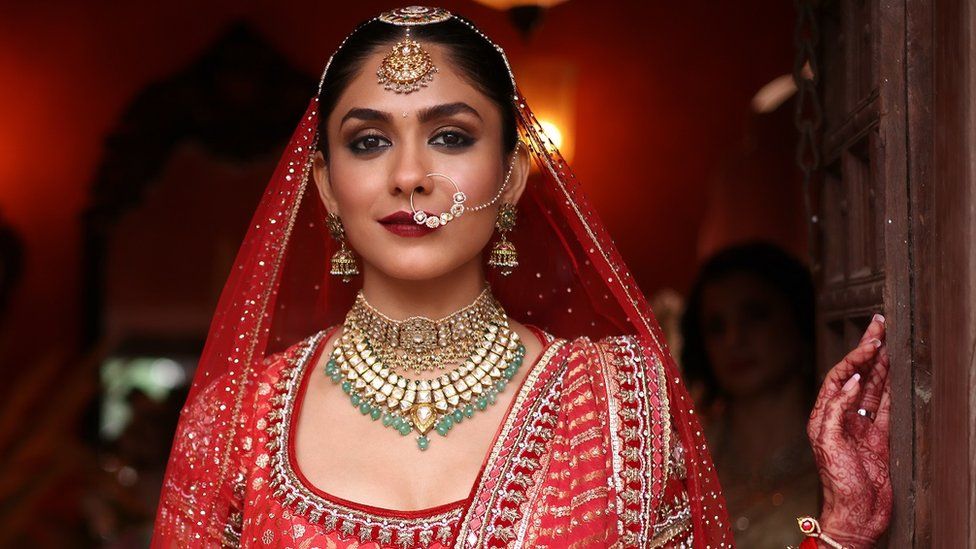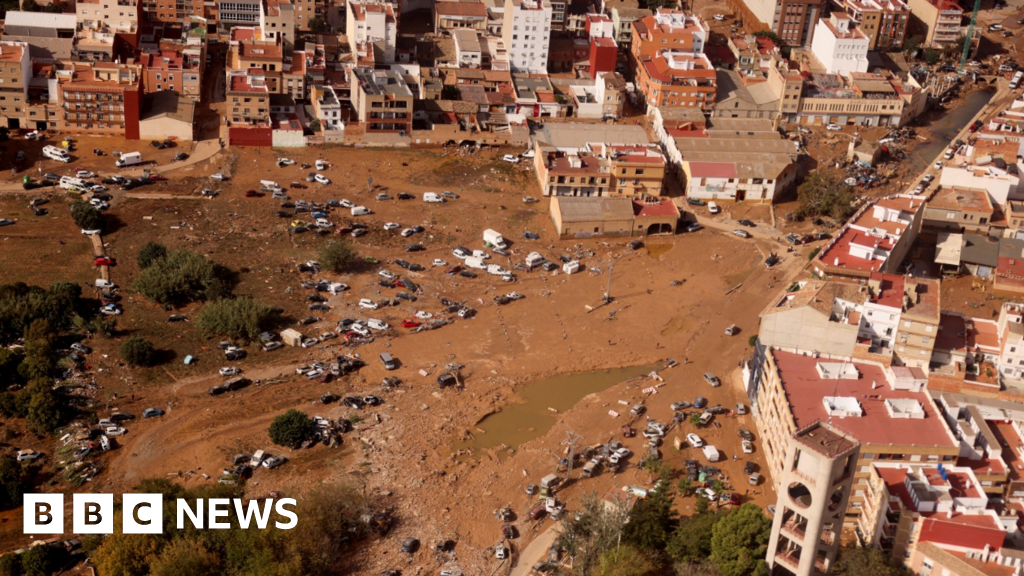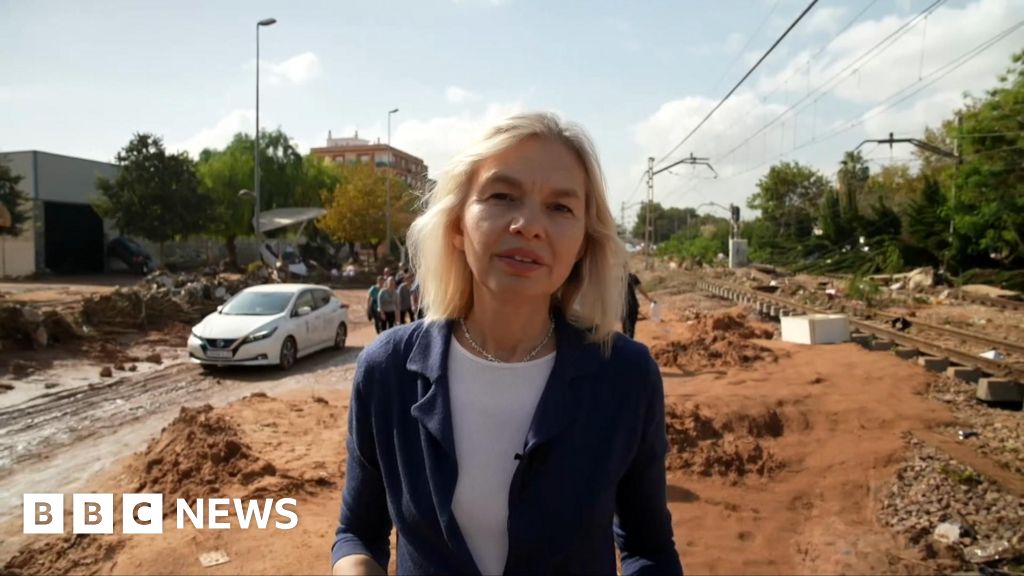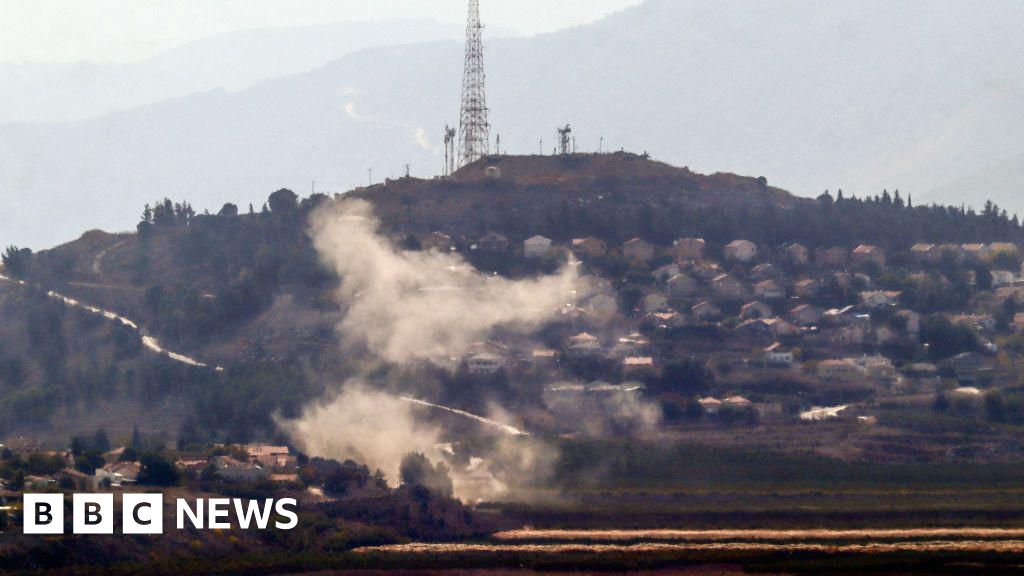ARTICLE AD BOX
 Image source, Prime Video
Image source, Prime Video
The series has been hailed for its stunning outfits
By Cherylann Mollan
BBC News, Mumbai
In India, weddings are largely grand, boisterous affairs. But a new web show casts a sceptical lens on the event, exposing some of the unsavoury realities that might lie behind the splendour.
The second season of Made In Heaven, streaming on Amazon Prime Video, traces the trials and tribulations of a group of wedding planners who go to great lengths to help Delhi's elite experience their "dream weddings".
The team is managed by Tara and Karan, who juggle their own problems along with those of the brides and grooms.
The series is among the most-watched on the platform in India currently, and fans have hailed it for showcasing lavish weddings and stunning outfits, along with a healthy dose of drama. It has also been praised for spotlighting social customs and prejudices that impact marriages but are often not spoken about, let alone shown on screen.
However, the show has also been criticised for its portrayal of Muslims and for not crediting a Dalit writer in an episode that allegedly draws on her work. The makers have denied the latter's allegation.
India's obsession with marriage has often been portrayed in reality shows - such as Indian Matchmaking and Band Baajaa Bride - and popular films.
Though things are slowly changing in the metropolitan cities, marrying largely remains the norm and single people, especially women, are often pressured by their families to "settle down".
A majority of the marriages in India are still arranged by families, who choose partners within the same caste and community. The institution is also seen as uniting not just two people but their families, a belief that can have a bearing on innocuous things like the wedding guest list to more serious decisions a couple may face, like choosing to have a child, call off a wedding or get divorced.
The show spotlights some of these deep-rooted problems plaguing not just marriages but Indian society.
Image source, Prime Video
Image caption,The series has seven episodes, each featuring a different wedding
In one episode, a bride is constantly made aware of her "dark skin" by her family and is encouraged to try a treatment that will make her skin "cleaner" and "brighter" - euphemisms carefully chosen to be less offensive. The bride, in turn, cannot get herself to stop applying fairness creams even though her partner tells her she's beautiful as she is.
In another episode, a groom's mother asks a bride if she really wants to call off the wedding, despite seeing the blood and bruises on the bride's face after her son, a life coach, kicks her in a jealous rage. (The bride decides to go ahead with the wedding after her abusive fiancé shows up outside her door, wailing and promising to "be better" with her help.)
Then there's a father who refuses to attend his lesbian daughter's commitment ceremony because he's afraid of what people will say, and a celebrity couple who tie the knot in an opulent ceremony in France, but more for optics and opportunity than for love.
"Each episode in this season takes up one structural social evil that is strengthened by marriage," says Debashree Mukherjee, a film scholar and professor at Columbia University. "Each episode ends with a gorgeous spectacle of a wedding but each relationship is so fraught with deep tensions that marriage as a social institution starts to unravel from within. Instead we get a vision of marriage as pure spectacle," she says.
Image source, Prime Video
Image caption,The show depicts a Dalit wedding with aplomb
The show has also been praised for depicting a Dalit (formerly known as untouchables) wedding with aplomb, rare in mainstream entertainment. The protagonist, Pallavi Menke, who's a Dalit academic, has to fight with her upper-caste husband and in-laws to include Buddhist wedding rituals in the celebrations.
Her in-laws are proud of her academic achievements, but not of her caste, while her liberal-minded husband is so blinded by his privilege that he's unable to see how his own family might be casteist.
But the show has also met with criticism on some fronts; some viewers have taken offence with an episode that aims to address polygamy.
In it, a Muslim man marries for the second time against the wishes of his first wife. One X (formerly Twitter) user criticised the show's makers for "peddling stereotypes" about the Muslim community.
The drama has also found itself in another controversy after Dalit writer Yashica Dutt accused the makers of using her "life and words" in the Buddhist wedding episode without crediting her. The makers "categorically denied any claim that Ms Dutt's life or work was appropriated by us".
Sayantan Ghosh, who works in publishing, said he found the show a tad preachy and would've liked for the storytelling to be more nuanced. Film critic Sucharita Tyagi says that some of the storylines were too "on the nose" and sounded like a "20-year-old trying to make it as an activist".
But despite the controversies and the rather bleak view the show takes of weddings and relationships - many feel that it's relevant, if only to start conversations around taboo subjects. Through the warm friendship of Tara and Karan, the series also imparts one of its subtlest takes on relationships.
Tara, who's negotiating a tough divorce settlement with her spouse, and Karan, a gay man who's struggling to come to terms with his dying mother's denial of his sexuality, are always there for each other. Through good times and bad, they have each other's backs.
"Where there is friendship, there is love, solidarity, and companionship," Ms Mukherjee says.
BBC News India is now on YouTube. Click here to subscribe and watch our documentaries, explainers and features.

 1 year ago
18
1 year ago
18








 English (US)
English (US)